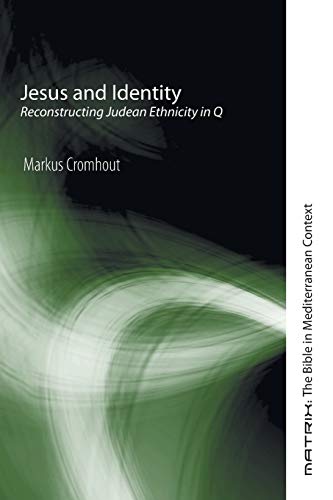Jesus and Identity: Reconstructing Judean Ethnicity in Q (Matrix: The Bible in Mediterranean Context)

New Testament scholarship lacks an overall interpretive framework to understand Judean identity. This lack of interpretive framework is quite acute in scholarship on the historical Jesus, where the issue of Judeanness (“Jewishness”) is most strongly debated. A socio-cultural model of Judean ethnicity is developed, being a synthesis of (1) Sanders’ notion of covenantal nomism, (2) Berger and Luckmann’s theories on the sociology of knowledge, (3) Dunn’s “four pillars of Second Temple Judaism” and his “new perspective” on Paul, (4) cultural or social anthropology in the form of modern ethnicity theory, and, lastly, (5) Duling’s Socio-Cultural Model of Ethnicity.
The proposed model is termed Covenantal Nomism. It is a pictorial representation of the Judean “symbolic universe,” which as an ethnic identity, is proposed to be essentially primordialist. The model is given appropriate content by investigating what would have been typical of first-century Judean ethnic identity. It is also argued that there existed a fundamental continuity between Judea and Galilee, as Galileans were ethnic Judeans themselves and they lived on the ancestral land of Israel. Attention is lastly focused on the matter of ethnic identity in Q. The Q people were given an eschatological Judean identity based on their commitment to Jesus and the requirements of the kingdom/reign of God.
